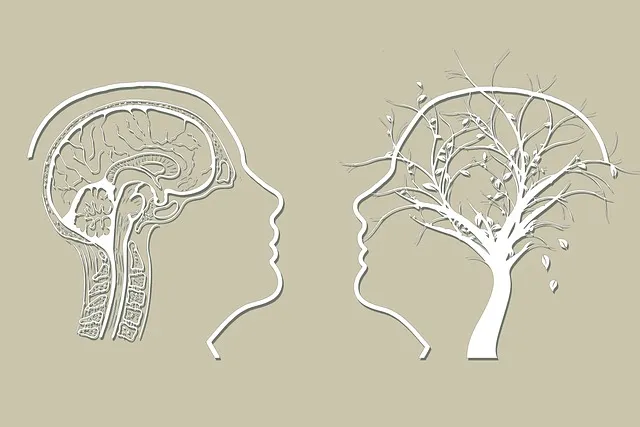Mental wellness apps are gaining popularity as remote alternatives to traditional therapy, especially in areas with limited access to services like those provided by Kaiser therapists in Longmont. To compete and provide valuable support, these apps must offer personalized experiences using evidence-based techniques for stress management, anxiety, and depression through easy-to-use interfaces. Incorporating engaging features such as gamification and calming aesthetics can enhance user engagement. Integrating proven methods like CBT and mindfulness ensures effective support tailored to users' emotional healing journeys. Privacy, security, and ethical considerations are crucial, especially when competing with established providers like Kaiser Longmont, to maintain user trust and confidentiality.
Mental wellness apps are gaining prominence as digital tools for managing mental health. However, developing effective apps requires a nuanced understanding of user needs and challenges. This article explores various aspects of creating robust mental wellness applications, from identifying common issues faced by users—like accessing quality therapy in specific regions, such as Longmont (e.g., does Kaiser have good therapists there?)—to designing engaging interfaces and integrating evidence-based practices. We also delve into critical considerations like privacy, security, and ethical standards to foster user trust.
- Understanding Mental Wellness App Needs: Exploring Common Challenges and User Expectations
- The Role of Therapy in Digital Platforms: Are Kaiser Therapists Accessible in Longmont?
- Designing an Engaging User Experience: Tips for Creating a Therapeutic Environment on an App
- Integration of Evidence-Based Practices: Essential Tools for Effective Mental Health Support
- Privacy, Security, and Ethical Considerations: Ensuring Trust in Mental Wellness Apps
Understanding Mental Wellness App Needs: Exploring Common Challenges and User Expectations

Mental wellness apps have become increasingly popular as people seek accessible and convenient ways to manage their mental health. When developing such apps, understanding user needs is paramount. The demand for effective tools to support mental well-being is high, with many individuals turning to technology for help, especially those in remote areas or with limited access to traditional therapy services, like the ones provided by Kaiser therapists in Longmont.
Common challenges users face include stress management, anxiety disorders, depression, and a desire for accessible self-care practices. They often expect personalized experiences, easy-to-use interfaces, and evidence-based techniques, such as Compassion Cultivation Practices or Stress Management Workshops organized by community outreach programs. Incorporating these expectations into app design can foster user engagement and ensure the app provides valuable support to those seeking mental wellness solutions.
The Role of Therapy in Digital Platforms: Are Kaiser Therapists Accessible in Longmont?

In today’s digital age, the integration of therapy into online platforms has revolutionized mental wellness support. Apps offering therapeutic services have gained popularity, providing individuals with accessible and convenient ways to improve their mental health. One notable question that arises is whether established healthcare providers like Kaiser offer good therapists in specific locations, such as Longmont.
The availability of qualified therapists through digital platforms can significantly impact public awareness campaigns for mental health. By increasing accessibility, these apps aim to boost confidence and self-esteem, encouraging more people to seek help. In Longmont, the ability to connect with Kaiser therapists remotely can be a game-changer, ensuring residents have access to quality care without geographical barriers. This development aligns with global trends in mental wellness app creation, where innovative solutions are sought to improve overall well-being and foster healthier communities.
Designing an Engaging User Experience: Tips for Creating a Therapeutic Environment on an App

Creating a mental wellness app involves much more than just programming; it’s about crafting an engaging user experience that fosters therapeutic growth. To make an app like Kaiser’s offerings in Longmont stand out, developers must prioritize intuitive design and interactive elements that encourage users to return. Incorporate features that promote self-awareness exercises and resilience building through gamification or personalized progress tracking. This can help users stay motivated and invested in their mental health journey.
A well-designed app should offer a seamless blend of education, support, and entertainment. Include diverse content formats like videos, podcasts, and interactive checklists to cater to different learning styles. Ensure the overall aesthetic is calming and visually appealing, using soft colors and clean layouts to create a safe digital space. By implementing these tips, your mental wellness app can provide a therapeutic environment that truly resonates with users seeking support, much like Kaiser’s therapists in Longmont are known to do.
Integration of Evidence-Based Practices: Essential Tools for Effective Mental Health Support

The integration of evidence-based practices is pivotal when developing mental wellness apps, ensuring users receive effective support tailored to their needs. These practices have been rigorously studied and proven successful in promoting emotional healing processes and fostering inner strength development. By incorporating techniques such as cognitive behavioral therapy (CBT), mindfulness meditation, and stress management strategies, an app can provide valuable tools for navigating mental health challenges. For instance, many healthcare providers, like those at Kaiser Longmont, recognize the benefits of these approaches, ensuring patients access quality care.
Leveraging technology to deliver evidence-based content allows users to engage in self-care routine development for better mental health. Apps that guide individuals through structured programs can significantly impact their overall well-being. This approach not only offers accessibility but also personalizes support, catering to the unique journey of each user’s emotional healing.
Privacy, Security, and Ethical Considerations: Ensuring Trust in Mental Wellness Apps

Privacy, security, and ethical considerations are paramount when developing mental wellness apps, especially as users share intimate details about their emotional well-being. With renowned therapists available in Longmont, such as those at Kaiser, users expect the same level of care and discretion from digital platforms. Effective risk management planning for mental health professionals is essential to building trust. Apps must employ robust encryption methods to safeguard user data, ensuring that sensitive information is not compromised or accessed without authorization.
Transparency around data usage and strict adherence to privacy laws like HIPAA are crucial. Users should be informed about how their data is collected, stored, and shared. Fostering inner strength development and mood management can greatly benefit from these apps, but only if users trust that their personal struggles remain confidential. Prioritizing ethical practices ensures a positive user experience and encourages individuals to seek support without hesitation.
Mental wellness apps have the potential to significantly enhance access to therapeutic support, especially in areas like Longmont where finding qualified therapists can be challenging. As discussed, integrating evidence-based practices and prioritizing user experience design are key to creating effective digital mental health solutions. While questions remain about the accessibility of Kaiser therapists in Longmont, the future looks promising for these apps to fill gaps in traditional healthcare services, provided developers address privacy, security, and ethical concerns head-on. By doing so, they can foster a genuine sense of trust among users seeking support for their mental wellness.






